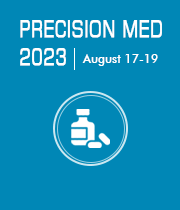Future of personalized medicine
Personalized medicine (PM) is a promising way to improve the future of personalized healthcare for all citizens, with a lot of potential in terms of disease treatment and prevention. Precision medicine is a fast-emerging health-care strategy that focuses on finding treatments and interventions that work for patients based on their genetic composition rather than their symptoms. The coming together of artificial intelligence (AI) with precision medicine has the potential to completely transform health care. Precision medicine identifies phenotypes of patients who have less-common therapeutic responses or special healthcare demands. The development of cutting-edge, innovative artificial intelligence and machine learning–based big data platforms has the potential to change medicine and allow for the rapid analysis of large amounts of data. While this presents unprecedented data storage, processing, interchange, and curation issues, it will ultimately lead to a greater understanding of biology.
- New Innovations
- Technological Revolution
- AI and Big Data Integration

Bernd Blobel
University of Regensburg, Germany
Roy Gary Beran
University of New South Wales, Australia
Matthias Schwab
University of Tubingen, Germany
Thomas Webster
Interstellar Therapeutics, United States
Boris Tankhilevich
Magtera, Inc., United States
Isabella Friis Jorgensen
University of Copenhagen, Denmark


Title : The use of anti seizure medication therapeutic blood level determination to personalise the treatment of epileptic seizures especially in patients attending the accident and emergency department
Roy Gary Beran, University of New South Wales, Australia
Title : Personalized and precision medicine (PPM) can be established as a unique healthcare model through biodesign-driven and inspired biotech, translational applications. This approach aims to ensure human healthcare, wellness, and biosafety.
Sergey Suchkov, Institute for Biotech & Global Health of RosBioTech and A.I. Evdokimov MGMSU, Russian Federation
Title : Monitoring folds localization in ultra-thin transition metal dichalcogenides using optical harmonic generation
Ahmed Raza Khan, Australian National University, Australia
Title : A systematic review of regulatory approaches for Direct- To- Consumers (DTC) genetic testing
Kavitha Palaniappan, Duke-NUS Medical School, Singapore
Title : Regulatory framework of in vitro diagnostic and artificial intelligence for precision medicine
Pei Ting Sarah Chou, Regulatory Affairs Professionals Society, Taiwan
Title : Unraveling cancer stem cell signatures in circulating tumor cells of metastatic colorectal cancer: Investigating ALDH1A1 and the repurposing potential of disulfiram via scRNA-seq
Nurul Syakima Ab Mutalib, Universiti Kebangsaan Malaysia, Malaysia